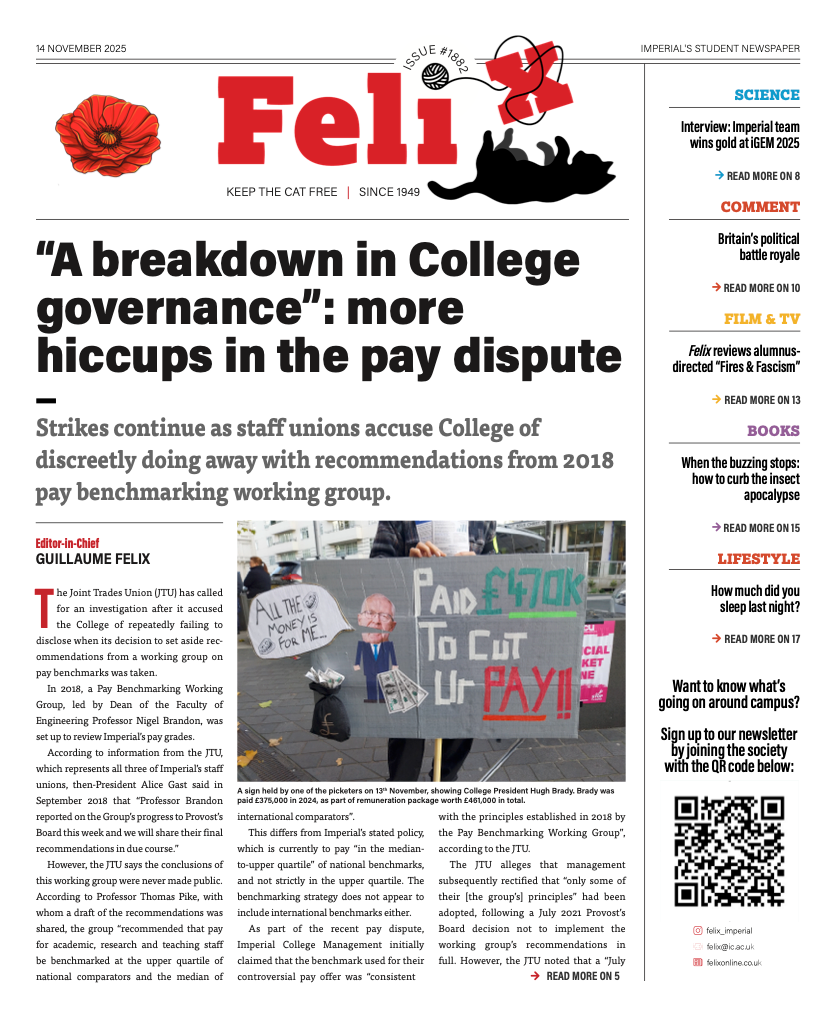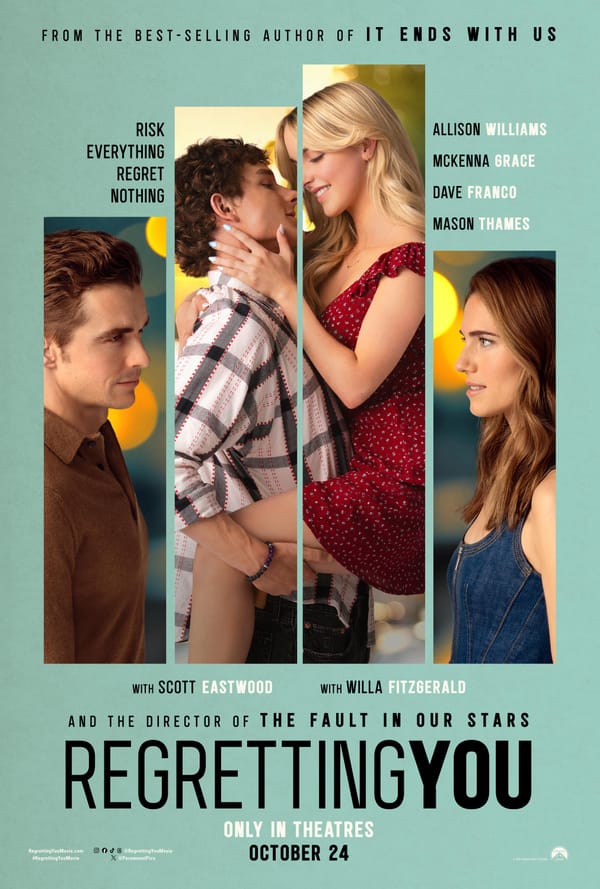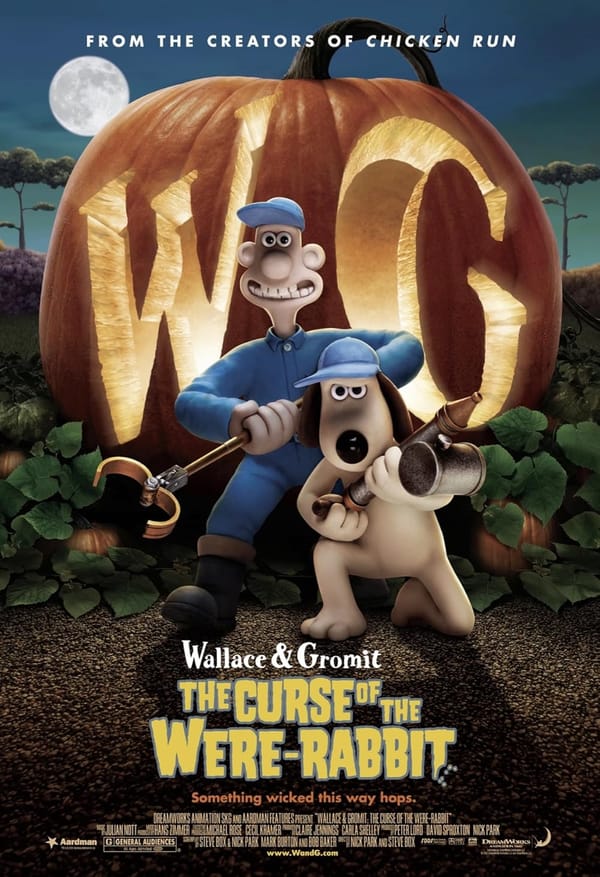The Running Man
What happens when entertainment becomes indistinguishable from the truth?
In his recent adaptation of The Running Man, Edgar Wright turns a violent game show into a chilling reflection of our own hunger for spectacle. Beneath the action and laughter he exposes how easy manipulation masquerades as entertainment. Any Stephen King adaptation is bound to be held to a high standard following classics like Kubrick’s The Shining, and I believe this one rises to the challenge: it establishes its own identity, trading tension for humour.
From the start, it is obvious that Ben Richards, played by Glen Powell, will end up on the Running Man. Thanks to Wright’s not-so-subtle foreshadowing, a humorous tone is set early on. In a dystopian world where the media outlet CNG controls social, economic, and political life, this humour feels out of place, yet that is part of Wright’s genius. It renders the show surreal, less about survival, and more about spectacle. This makes the audience also part of the on-screen audience, both seeking entertainment. Powell perfects the “I don’t give a f*ck” attitude, with his defiant grin and witty punchlines that further the theatrical surrealism. Credit must also go to Colman Domingo, acting as Bobby Thompson, whose theatrical voice and physicality make him the perfect on-set presenter, masking the power of the CNG behind the razzle-dazzle.

This humorous action-filled first half fades into a much more serious second part as the media’s control, personified through Dan Killian (Josh Brolin), is fully revealed. Events like faking recordings or even manipulating “live” footage bring forth the main theme explored by Wright: media control. The footage becomes a weapon, used to create bloodlust and hatred towards Ben. This breaks the earlier connection as the audience revolts at the lies that the on-screen audience completely eats up. This theme is central to our current world, with our ever-expanding media outlets, fake news, and “tailored” algorithms. Wright’s shift to muted colours and sombre music brings the audience back to the reality of a world where entertainment takes precedence over human life. Even the action scenes reflect this, as Ben’s mortality becomes much more important, in sharp contrast to the earlier scenes that seemed to mock the hunters’ supposed prowess.
A violent game show turned into a chilling reflection of our own hunger for spectacle.
Wright’s film gestures boldly towards a critique of media manipulation, but its action-heavy climax and abrupt ending drain the story of the unease at the dystopian world it works so hard to create. The ending promises to deliver the long-awaited confrontation between Ben and Dan Killian, but instead avoids resolution, opting for a dissonant return to early humour that breaks the film’s atmosphere. Rather than leaving questioning society, I found myself simply wondering what had happened to Ben – a mix of relief and disappointment at the lack of climax. Wright then attempts to rekindle revolutionary bloodlust, but the shift feels hollow, isolating the audience rather than immersing us in the despair and injustice.
Audiences seeking a funny, action-packed dystopian film will find plenty to enjoy in what may be the action movie of the year. Ben Richards’ strong-headed defiance recalls that of Katniss Everdeen from The Hunger Games, and any fans of this genre will feel right at home. For those seeking the deeper layers, the ending doesn’t do the movie justice and undermines much of Wright’s early world-building. The concept had a lot of potential in our modern cynical media-driven world and The Running Man unfortunately falls short thematically. In the end, it leaves us entertained but perhaps too comfortable. It is a film about manipulation which ironically lets us off the hook.
Genre: Sci-fi/Adventure
Release Date: 14th November, 2026









